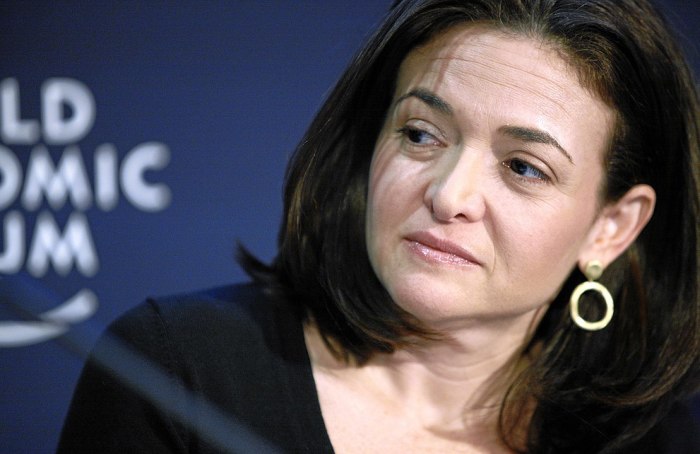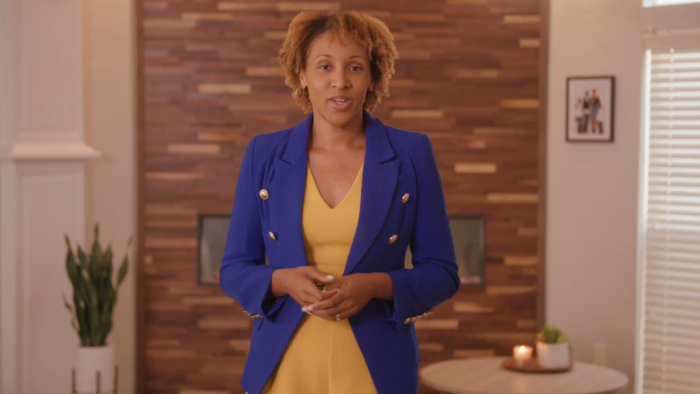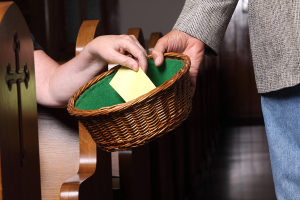Facebook COO Sheryl Sandberg hopes churches will one day host virtual reality services on platform

Calling faith communities the “best of Facebook,” the social media giant’s Chief Operating Officer Sheryl Sandberg said she's looking forward to the day when churches and other religious groups begin hosting services in virtual reality on the platform as many flocked to the service amid the pandemic to stay connected.
Sandberg made her intentions known during a recent virtual faith summit with several religious groups in which she highlighted the critical role Facebook played when communities of faith were unable to gather as a result of the novel coronavirus pandemic.
“As a person of faith myself, I know how important it is for my family to be able to stay connected with our Jewish community remotely. We’ve been able to celebrate high holy days … from our home thanks to technology,” Sandberg said.
“I sometimes reflect on how much harder the experience for the last year might have been if the pandemic had taken place just a few years earlier because it used to be you needed a TV studio to do what you can now do with your smartphone. Nothing has made me prouder than seeing the role Facebook apps have played in keeping people connected at a time when we all had to be apart,” she added.
Sandberg explained that well before the pandemic, Facebook began working with faith communities to see how the company could better serve them and those efforts proved fruitful during the pandemic.
“I know that faith organizations and social media are a natural fit because fundamentally, both are about connection. This was true long before the pandemic. Back in 2017, we changed our mission to give people the power to build community around the world closer together. We envisioned a world where our platform could help people build community by connecting with others who shared their interests. And we built a team within Facebook to help us better serve people of faith and houses of worship globally,” she said.
“Four years later, we are gathering on Facebook to again affirming (sic) the value of connecting people to faith, hope, inspiration and love. Facebook can be a place where members of large denominations find common ground or where people from older or smaller religious tradition find each other no matter where they are in the world,” she continued. “Our hope is that one day people will host religious services in virtual reality spaces as well or use augmented reality as an educational tool to teach their children the story of their faith.”
While technology will never be a substitute for joining together in a space of worship, Sandberg believes it will empower them.
“Communities of faith represent the best of Facebook and we hope to keep it that way now and in the future,” she said.

Nora Jones, a pastor at Open Door Ministries in Gainesville, Florida, and Facebook's director for global faith partnerships, said the company has been working over the last four years to help churches and other houses of worship understand that “Facebook is so much more than just a place to make people aware of your programs and events. It’s a place where you can build authentic faith community.”
“So many of you as people of faith and leaders of houses of worship had to reckon with the fact that physical gatherings were suspended for health concerns. And it was during this time of uncertainty when so many people felt lost that you stood up and said, let’s take our faith into the digital domain." Jones said.
"The reason why we’re hosting this gathering today is to celebrate you. To celebrate the fact that when the global faith community was challenged with the opportunity to continue to hope that there could be change and life and light, you created those spaces on Facebook,” she added.
A Facebook spokesperson told The Christian Post on Wednesday that churches will also be able to participate in a program called Fan Subscriptions, which allows fans to support their favorite creators with a monthly recurring payment. To participate, all creators, including religious groups, must also have 10,000 followers or 250+ return viewers along with “50,000 Post Engagements or 180,000 Watch Minutes” in the last 60 days.
Since the new coronavirus pandemic first led to lockdowns in March 2020, the Church, like many other sectors of society, has had to make many changes, including a significant shift to digital worship, and recent studies show that many of those changes are likely to endure.
One study, Trends in the Black Church, showed that black churchgoers have adapted so well to online church amid the pandemic that some 41% of them now favor a hybrid model of in-person and online services, even after COVID-19 is no longer deemed as severe of a threat. Some 7% say they would rather their church services remain digital going forward the study revealed.
No longer able to pass the collection plate around because they were not able to gather physically, many churches also increasingly shifted to online giving platforms.




























